First Annual Meeting: 7th-10th November 2022 in Addis Ababa
Since our last newsletter we have been delighted to hold our first annual meeting in Addis Ababa. It was attended by team members from the UK (Universities of Dundee and Bristol), Ethiopia (Addis Ababa University, University of Gondar, University of Jimma, Ethiopian Public Health Institute and Armauer Hansen Research Institute) and Israel (Hadassah-Hebrew University, Jerusalem). It was an opportunity for members of the project team to meet face to face for the first time, to visit partners based in Addis Ababa, and to publicise the project to a wide range of stakeholders to encourage input and collaboration from individuals beyond the DESTINE team.
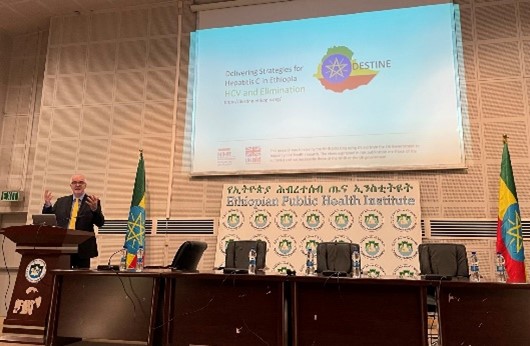
On day one the DESTINE team visited the Ethiopian Public Health Institute (EPHI) and gave well attended public lectures, which were followed by a panel discussion chaired by Dr Geremew Tasew. Panel discussion included topics of medication type and cost, PCR v antibody testing, and viral genotyping. The team were subsequently shown around the laboratory facilities where the EDHS samples are stored and the HCV analysis will be done. The contributions that the DESTINE project could make to training at EPHI were discussed.
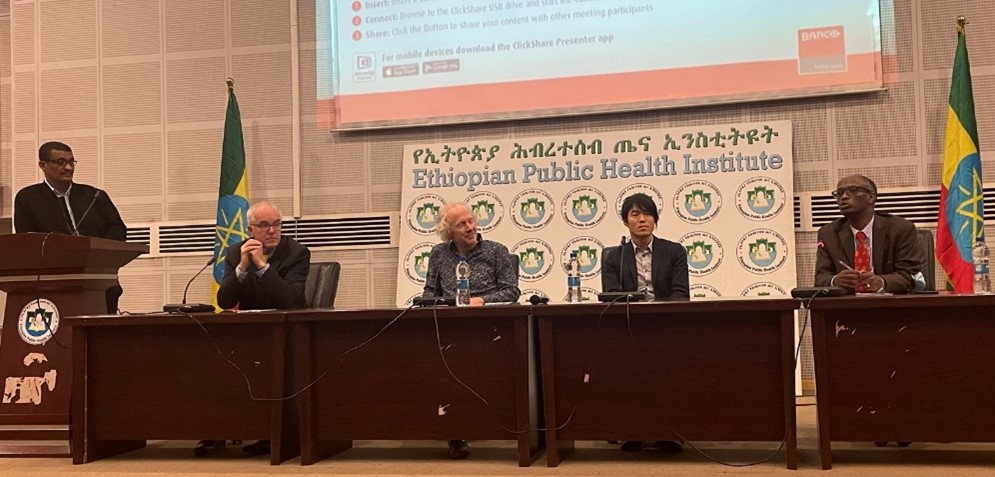
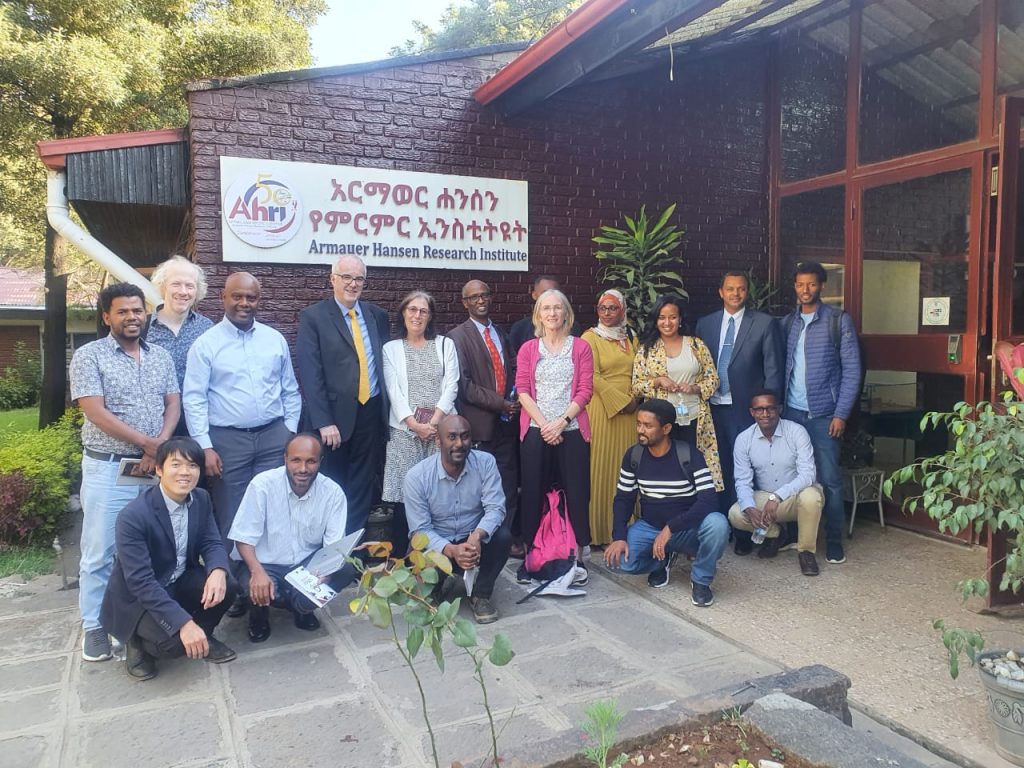
After lunch at EPHI, the team visited the Armauer Hansen Research Institute (AHRI) where they were joined by Professor Ora Paltiel and Obsie Baissa of Hadassah-Hebrew University. They attended AHRI’s Monday lecture which was delivered by Dr Alemseged Abdissa on Open Science. The team then met with Professor Afework Kassu, Director General of AHRI, who introduced AHRI. Prof Dillon gave a brief overview of the DESTINE project and Dr Andaragachew discussed community engagement work previously done in AHRI that will be built on for the DESTINE project.
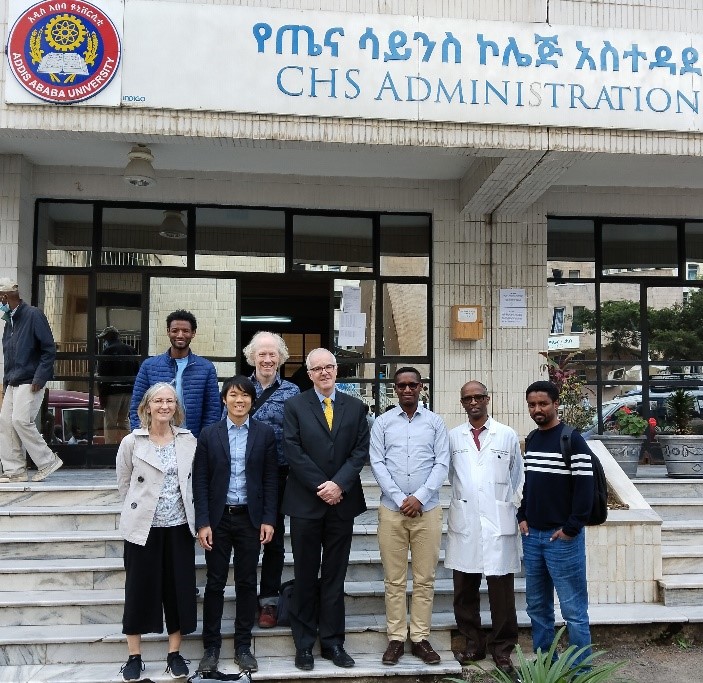
Day two involved a visit to the College of Health Sciences at Addis Ababa University where the team gave a public lecture chaired by Dr Eyobe Beyene. This was well attended and generated discussion around the HCV medications that would work best in Ethiopia and the likely demographics of the population affected by HCV.
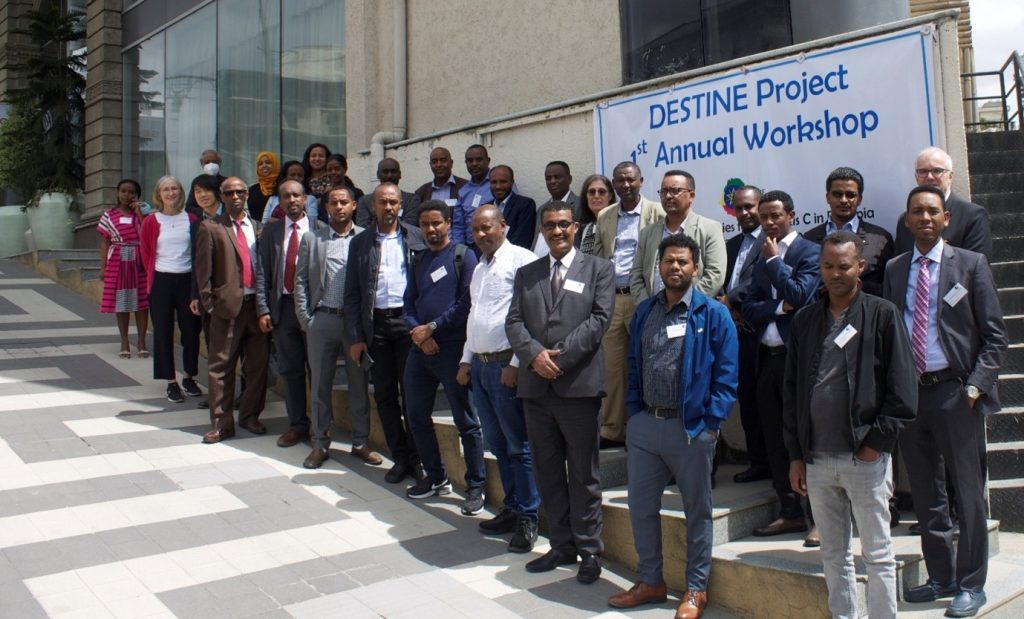
The main meeting of the DESTINE project was held in the Capital Hotel on Wednesday 9th November. Attendees included representatives from the Ethiopian government, WHO and other institutions, together with the DESTINE team. The meeting comprised 4 plenary sessions each of which had 3 or 4 presentations followed by a panel discussion.
Discussions were wide-ranging and included the need for accurate data with sampling from at-risk populations, working with community health volunteers, the challenges of Ethiopian geography and demographics, and the importance of alignment with Ministry of Health strategies.
The visit concluded with a roundtable meeting of the DESTINE team who gave very positive feedback about this invaluable opportunity to build working relationships and gain a greater understanding of the environment in which colleagues are working.
PhD Students
Atsbeha Gebreegziabxier Weldemariam
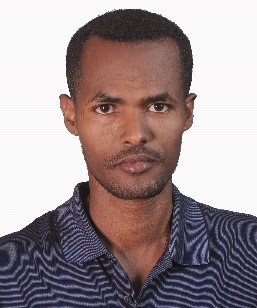
I am Atsbeha Gebreegziabxier Weldemariam from the Ethiopian Public Health Institute and I work in the area of pathogen genomics. I received a Master of Science in Nanomedicine from Universitat Rovira I Virgili, Spain. I am a PhD candidate at the University of Dundee’s School of Medicine. This is a four year PhD program at the University of Dundee’s School of Medicine under the supervision of Prof. John Dillon and co-supervisors of Dr. Dawit Wolday, Dr. Geremew Tasew and Prof. Wondwossen Amogne.
My PhD research within the DESTINE project focuses on genomic diversity of HCV in Ethiopia to characterize the genetic diversity of endemic HCV lineages in Ethiopian population to determine optimal treatment strategies and facilitate the World Health Organization’s 2030 elimination strategy.
I will address the following main objectives via my PhD program:
1. Population based serological studies of HCV in Ethiopia
2. Genetic diversity of HCV ( Dynamics, evolutionary, transmission route and epidemiological patterns) and geographical distribution of HCV genotypes and subtypes of hepatitis C virus in Ethiopia
3. Emergence of resistance-associated HCV variants including co-infection
4. level of drug resistance HCV treatment naïve and treatment acquired using next generation sequencing in Ethiopia
5. In-depth analysis of sequence variation in HCV protein across all genotypes and identifies active site amino acid residues crucial for drug–protein interactions. This approach can help study inter-genotype sequence heterogeneity in viral proteins and its correlation with the response to the antiviral treatment regimen